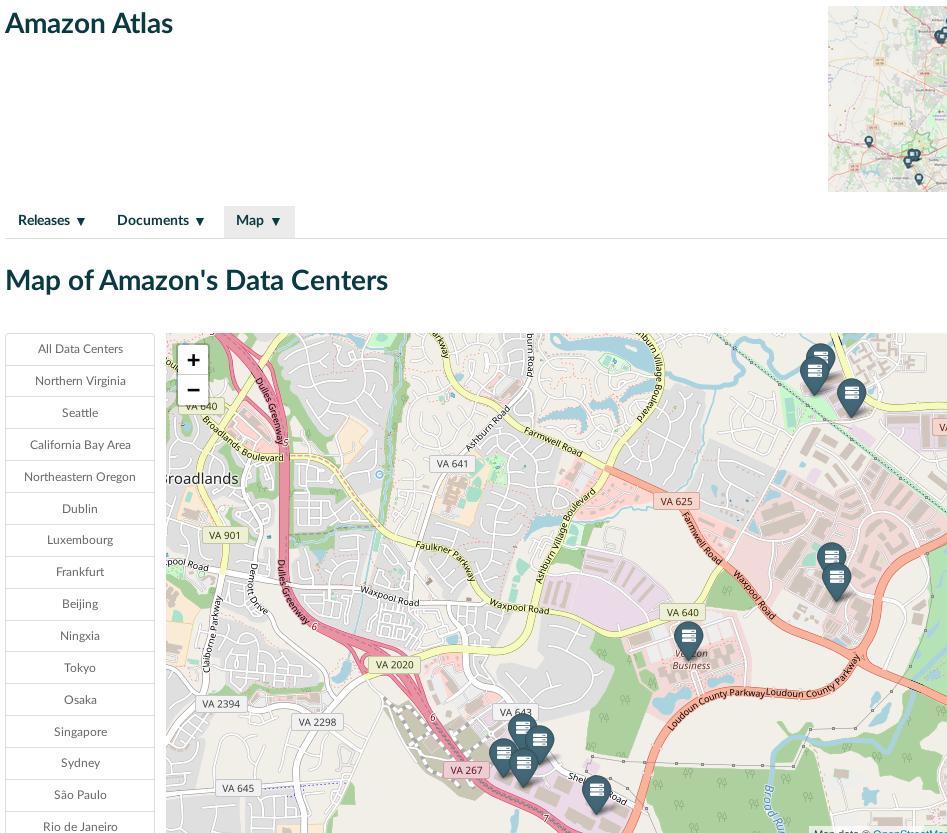#aws
The best part about #aws and #clowncomputing in general is finger-pointing. You pass the blame to "some other company" -- one that never compensates you for failure to deliver. It only BILLS you. More and more each month/year. It's a bubble, not a cloud; a "clown".
Well, #aws (unlike #microsoft #azure for example) is not firing workers (the layoffs Microsoft hides from you) and isn't losing BILLIONS OF DOLLARS PER QUARTER.
Pushing #clowncomputing -- the downtime you're not in control of. #suse can do better than this #outsourcing to #microsoft Azure (LAYOFFS!) and #aws https://www.suse.com/c/2020-closing-thoughts-in-suse-aws-land/
Cloud wake-up call: Amazon Web Services outage illustrates the pitfalls of online infrastructure
 Bigstock Photo / klevo
Bigstock Photo / klevo
Amazon Web Services is one of the greatest successes of modern business and technology, leveraging its first-mover advantage in the public cloud to empower companies with capabilities that they couldn’t build on their own, and creating a lucrative business for itself in the process.
It sure didn’t feel so dreamy on Tuesday.
Outages are nothing new, and this wasn’t the worst we’ve seen, but the problem experienced by the widely used AWS US-EAST-1 Region was remarkable for its widespread impact, illustrating the extraordinary reach of the cloud.
This wasn’t just about websites going down. Day traders couldn’t trade. Gamers couldn’t game. Adele couldn’t sell tickets to her upcoming tour, for goodness’ sake.
The fallout was apparent everywhere you looked, from McDonald’s kiosks to Tinder hookups to NPR podcasts.
Amazon itself was far from immune from the challenges. The company’s employees were unable to use the company’s Chime communication app on their computers for several hours. Some users reported that Amazon Music was unavailable. COVID-19 test results weren’t accessible through the company’s mail-in testing service.
The company’s Ring subsidiary experienced problems that cut customers off from their cameras.
I wonder if
[
@ring
](https://twitter.com/ring?ref_src=twsrc%5Etfw)
uses
[
@awscloud
](https://twitter.com/awscloud?ref_src=twsrc%5Etfw)
[
](https://twitter.com/hashtag/aws?src=hash&ref_src=twsrc%5Etfw)
as the latter is apparently having issues and I can't access my door bell camera, even live. Same on phone ☹️
[
pic.twitter.com/IG3gukE6P7
— Guy Leech (@guyrleech)
[
December 7, 2021
](https://twitter.com/guyrleech/status/1468266119693750276?ref_src=twsrc%5Etfw)
In the company’s core e-commerce business, product pages didn’t load, and orders didn’t go through. Customers couldn’t order groceries. Delivery drivers sang karaoke and ultimately went home for the day after the outage severed their ties to the app that coordinates their deliveries.
This couldn’t have come at a worse time for Amazon, during a holiday season that was already challenged by supply chain bottlenecks.
All of this leads to an obvious question: Has the world become too dependent on Amazon’s cloud?
“I think so,” said Corey Quinn, the chief cloud economist at The Duckbill Group, when I asked that question in a Twitter direct message on Tuesday evening. He pointed out that it could of been a lot worse: “A full outage of that region (not the partial one we saw today) means a massive economic event.”
Quinn elaborated on his thoughts in a Twitter thread that’s worth reading in full.
To be explicit, I don't think AWS has done anything wrong here. This is the natural end result of their success at massive scale.
— Corey Quinn (@QuinnyPig)
[
December 8, 2021
](https://twitter.com/QuinnyPig/status/1468442903773024256?ref_src=twsrc%5Etfw)
What can be done? What happened to redundancy? There may be no clear answers at this point, but as Quinn notes, these are important questions to ask.
Ultimately, Amazon may be in the best position to provide the solution, and with the former AWS chief Andy Jassy at the head of the company now, Amazon is better-positioned than ever to address this.
posted by pod_feeder
I’m almost certain the images on the McDonald’s kiosk are hosted in an S3 bucket in us-east pic.twitter.com/kdQdvfejX0
— shh (@worldwise001) December 7, 2021
Cloud wake-up call: Amazon Web Services outage illustrates the pitfalls of online infrastructure
 Bigstock Photo / klevo
Bigstock Photo / klevo
Amazon Web Services is one of the greatest successes of modern business and technology, leveraging its first-mover advantage in the public cloud to empower companies with capabilities that they couldn’t build on their own, and creating a lucrative business for itself in the process.
It sure didn’t feel so dreamy on Tuesday.
Outages are nothing new, and this wasn’t the worst we’ve seen, but the problem experienced by the widely used AWS US-EAST-1 Region was remarkable for its widespread impact, illustrating the extraordinary reach of the cloud.
This wasn’t just about websites going down. Day traders couldn’t trade. Gamers couldn’t game. Adele couldn’t sell tickets to her upcoming tour, for goodness’ sake.
The fallout was apparent everywhere you looked, from McDonald’s kiosks to Tinder hookups to NPR podcasts.
Amazon itself was far from immune from the challenges. The company’s employees were unable to use the company’s Chime communication app on their computers for several hours. Some users reported that Amazon Music was unavailable. COVID-19 test results weren’t accessible through the company’s mail-in testing
The company’s Ring subsidiary experienced problems that cut customers off from their cameras.
I wonder if
[
@ring
](https://twitter.com/ring?ref_src=twsrc%5Etfw)
uses
[
@awscloud
](https://twitter.com/awscloud?ref_src=twsrc%5Etfw)
[
](https://twitter.com/hashtag/aws?src=hash&ref_src=twsrc%5Etfw)
as the latter is apparently having issues and I can't access my door bell camera, even live. Same on phone ☹️
[
pic.twitter.com/IG3gukE6P7
— Guy Leech (@guyrleech)
[
December 7, 2021
](https://twitter.com/guyrleech/status/1468266119693750276?ref_src=twsrc%5Etfw)
In the company’s core e-commerce business, product pages didn’t load, and orders didn’t go through. Customers couldn’t order groceries. Delivery drivers sang karaoke and ultimately went home for the day after the outage severed their ties to the app that coordinates their deliveries.
This couldn’t have come at a worse time for Amazon, during a holiday season that was already challenged by supply chain bottlenecks.
All of this leads to an obvious question: Has the world become too dependent on Amazon’s cloud?
“I think so,” said Corey Quinn, the chief cloud economist at The Duckbill Group, when I asked that question in a Twitter direct message on Tuesday evening. He pointed out that it could of been a lot worse: “A full outage of that region (not the partial one we saw today) means a massive economic event.”
Quinn elaborated on his thoughts in a Twitter thread that’s worth reading in full.
To be explicit, I don't think AWS has done anything wrong here. This is the natural end result of their success at massive scale.
— Corey Quinn (@QuinnyPig)
[
December 8, 2021
](https://twitter.com/QuinnyPig/status/1468442903773024256?ref_src=twsrc%5Etfw)
What can be done? What happened to redundancy? There may be no clear answers at this point, but as Quinn notes, these are important questions to ask.
Ultimately, Amazon may be in the best position to provide the solution, and with the former AWS chief Andy Jassy at the head of the company now, Amazon is better-positioned than ever to address this.
posted by pod_feeder
I’m almost certain the images on the McDonald’s kiosk are hosted in an S3 bucket in us-east pic.twitter.com/kdQdvfejX0
— shh (@worldwise001) December 7, 2021
Vess auf Twitter: "1970: We're going to build a global network that can withstand a nuclear war. 2021: AWS is down and my coffee machine doesn't work." / Twitter
https://twitter.com/VessOnSecurity/status/1468457819296968705
1970: We're going to build a global network that can withstand a nuclear war.
— Vess (@VessOnSecurity) December 8, 2021
2021: AWS is down and my coffee machine doesn't work.
With #DocumentDB #amazon #aws caused something that was #freesw to become #ProprietarySoftware ... don't fall for the PR stunts of Amazon. #openwashing after attacking a revenue stream of ACTUAL developers.
#aws = #amazon copying #freesw and making it #ProprietarySoftware (ish) through #clownComputing ploy. Now #microsoftTim is boosting this modus operandi (same as Microsoft's). https://www.theregister.com/2021/12/06/aws_documentdb_not_mongodb_compatible/ reference: http://techrights.org/2020/06/10/the-bezos-leaning-ploy/
WTH??? Check that first paragraph. #AWS employee #MacAsay spamming for his employer... and it is disguised as 'article'. #idg = #spamfarm https://www.arnnet.com.au/article/693701/how-centos-changes-cloud-linux-game/?fp=2&fpid=1
#AWS is making a major commitment to Linux | TechRadar http://www.tuxmachines.org/node/158282#comment-31851
"the #AWS costs to do this a frighteningly low..." https://mastodon.social/@glynmoody/107168322872962737
#It’s time to boycott #AWS • 𝖳𝗎𝗑 𝖬𝖺𝖼𝗁𝗂𝗇𝖾𝗌 ⇨ http://www.tuxmachines.org/node/157202 many other reasons e.g. http://techrights.org/2020/06/10/the-bezos-leaning-ploy/ and http://techrights.org/wiki/index.php/Amazon
#Amazon reportedly given contract to store data for #MI5, #MI6 and #GCHQ | GCHQ | The
Guardian
Notwithstanding the fact that these security agencies are allowing a foreign company to store sensitive data, how stingy is the #UK #Government that it can't host its own #data.
https://www.theguardian.com/uk-news/2021/oct/26/amazon-web-services-aws-contract-data-mi5-mi6-gchq





